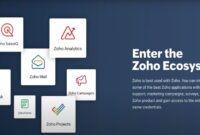CRM Success with the Ultimate Sales Software for companies trying to increase customer interactions and streamline processes. They provide a full view of each client’s journey, preferences, and history with the organization by centralizing customer data.
They also provide insights that can guide targeted email marketing initiatives, improve team cooperation, and make sure no crucial information is overlooked.
Additionally, they free up staff members’ important time to concentrate on revenue-generating activities by automating time-consuming duties like data input and follow-ups. However, choosing the best CRM system can be difficult due to the abundance of possibilities.
Certain models cater solely to the needs of small firms, while others possess sufficient strength to satisfy the requirements of larger corporations. To make the process of selecting decisions easier for you, we carefully evaluate products from top suppliers. For our best picks and insightful advice on weighing your options, continue reading.
A sales software CRM, or Customer Relationship Management system, is a tool that helps businesses manage their sales processes and customer relationships. It can help businesses track leads, manage customer data, and automate sales processes.
Sales software CRMs can provide a number of benefits for businesses, including:
- Improved sales efficiency
- Increased customer satisfaction
- Better decision-making
- Reduced costs
Sales software CRMs have been around for decades, but they have become increasingly sophisticated in recent years. Today’s sales software CRMs can integrate with a variety of other business systems, such as marketing automation and accounting software. This allows businesses to get a complete view of their customer relationships and sales processes.
CRM Success with the Ultimate Sales Software
Sales software CRM is a critical tool for businesses of all sizes. It can help businesses manage their sales processes, track customer interactions, and close more deals. Here are seven key aspects of sales software CRM that businesses should consider:
- Lead management: software CRM can help businesses capture and track leads from a variety of sources, such as websites, email marketing, and social media.
- Customer relationship management: software CRM can help businesses manage their relationships with customers, including tracking customer interactions, preferences, and purchase history.
- Sales automation: Sales software CRM can help businesses automate sales processes, such as sending follow-up emails, scheduling appointments, and creating quotes.
- Reporting and analytics: software CRM can provide businesses with valuable insights into their sales performance, such as which sales reps are performing the best, which products are selling the most, and which marketing campaigns are generating the most leads.
- Integration with other business systems: software CRM can integrate with other business systems, such as accounting software, marketing automation software, and customer support software. This allows businesses to get a complete view of their customer relationships and sales processes.
- Mobility: software CRM is often available on mobile devices, which allows sales reps to access their CRM data and manage their sales processes from anywhere.
- Security: software CRM systems are typically secure, which helps businesses protect their customer data.
By considering these seven key aspects, businesses can choose a sales software CRM that meets their specific needs and helps them achieve their sales goals.
Lead management
Lead management is crucial to sales. It involves capturing and tracking leads from websites, email marketing, and social media. Businesses may automate and streamline this process with software CRM to track leads and close more deals.
Sales software CRM for lead management has many benefits. First, it can boost business leads. Integration with websites, email marketing, and social media lets software CRM automatically record leads.
Second, CRM sales software improves lead tracking. Tracking lead advancement is straightforward with its centralised lead data storage and management. This data can help prioritize sales and discover high-converting leads.
Third, CRM sales software helps close more deals. Salespeople may manage their pipeline, track customer interactions, and finalize deals with its tools. Sales people can use this data to upsell, cross-sell, and close deals faster.
All sizes of businesses benefit from software CRM. Businesses can acquire more leads, track them better, and close more agreements. CRM sales software helps firms achieve their goals and increase sales effectiveness.
Customer relationship management
Customer relationship management (CRM) is a critical part of sales. It involves managing all aspects of the customer relationship, from lead generation to customer service. Sales software CRM can help businesses manage their customer relationships more effectively, leading to increased sales and improved customer satisfaction.
- Tracking customer interactions: software CRM can track all customer interactions, including phone calls, emails, and meetings. This information can be used to build a complete picture of the customer relationship and to identify opportunities to improve customer service.
- Storing customer preferences: software CRM can store customer preferences, such as product preferences, communication preferences, and purchase history. This information can be used to personalize the customer experience and to make it more likely that customers will make repeat purchases.
- Managing customer purchase history: software CRM can track customer purchase history, including the products purchased, the dates of purchase, and the amounts spent. This information can be used to identify trends and to develop targeted marketing campaigns.
- Providing customer support: software CRM can be used to provide customer support, such as answering questions, resolving complaints, and processing returns. This information can be used to improve customer satisfaction and to build stronger customer relationships.
By providing a centralized location to manage all aspects of the customer relationship, software CRM can help businesses improve their sales performance and achieve their business goals.
Sales automation
Sales automation is a key part of sales software CRM. It can help businesses automate a variety of sales processes, such as sending follow-up emails, scheduling appointments, and creating quotes. This can free up sales reps to focus on more strategic tasks, such as building relationships with customers and closing deals.
There are a number of benefits to using sales automation. First, it can help businesses save time. By automating repetitive tasks, sales reps can spend more time on activities that are more likely to generate revenue. Second, sales automation can help businesses improve accuracy. By automating tasks, businesses can reduce the risk of errors. Third, sales automation can help businesses improve consistency. By using a standardized process, businesses can ensure that all sales reps are following the same best practices.
Overall, sales automation is a valuable tool for businesses of all sizes. It can help businesses save time, improve accuracy, and improve consistency. By investing in sales automation, businesses can improve their sales performance and achieve their business goals.
Reporting and analytics
Sales software CRM systems provide robust reporting and analytics capabilities that empower businesses to gain deep insights into their sales performance. This information can be used to identify trends, improve decision-making, and drive growth.
- Sales performance analysis: CRM sales software tracks income, volume, and average deal size. This data can track sales performance and suggest improvements.
- Sales rep performance analysis: CRM software tracks sales professionals’ volume, win rate, and average deal size. Top performers and underperformers can be identified and coached using this data.
- Product performance analysis: CRM software tracks product sales volume, average selling price, and gross profit margin. This data can help discover top-selling products and create customized marketing strategies.
- Marketing campaign analysis: software CRM can track the performance of marketing campaigns, including the number of leads generated, the conversion rate, and the ROI. This information can be used to identify successful marketing campaigns and optimize future campaigns.
By providing businesses with valuable insights into their sales performance, software CRM can help businesses make better decisions, improve sales performance, and achieve their business goals.
Integration with other business systems
CRM sales software helps firms improve sales operations and client relationships. CRM sales software works best when integrated with other corporate platforms. This will give firms a complete perspective of their customer connections and sales processes and automate many sales and customer management chores.
- Improved data accuracy: When software CRM is integrated with other business systems, it can eliminate the need for manual data entry. This can help to improve data accuracy and reduce the risk of errors.
- Increased efficiency: By automating tasks such as lead generation, contact management, and order processing, software CRM can help businesses to increase efficiency and free up sales reps to focus on more strategic tasks.
- Better decision-making: With a complete view of their customer relationships and sales processes, businesses can make better decisions about how to allocate resources and how to target their marketing and sales efforts.
- Improved customer service: By integrating software CRM with customer support software, businesses can provide better customer service. For example, customer support reps can access customer information and order history directly from the CRM system.
Overall, integrating software CRM with other business systems can provide businesses with a number of benefits. By doing so, businesses can get a complete view of their customer relationships and sales processes, improve data accuracy, increase efficiency, make better decisions, and provide better customer service.
Mobility
The mobility of sales software CRM is a key factor in its success. Sales reps are increasingly using mobile devices to access their CRM data and manage their sales processes from anywhere. This allows them to be more productive and efficient, and to better serve their customers.
Mobile CRM has many benefits. First, sales reps may view CRM data anywhere. They may access customer data, track sales possibilities, and manage their schedules remotely. Mobile CRM platforms are frequently easier to use. This makes the system easy to use and maximize for sales people.
Mobile CRM systems boost customer service in addition to the previous benefits. With mobile access to client information and sales prospects, sales staff can better respond to consumer inquiries and handle issues swiftly. Customer satisfaction and loyalty may rise.
Mobile sales software CRM is crucial to its success. Businesses may boost sales productivity, efficiency, and customer service by letting sales professionals access CRM data and handle sales processes remotely.
Security
CRM sales software security is essential. Businesses require confidence that their CRM system and client data are secure. CRM sales software uses encryption, access limits, and regular security updates to protect client data.
Even if intercepted, encryption protects client data. Customer data access and use are limited by access controls. Regular security updates fix attacker-exploitable vulnerabilities.
Businesses may protect client data from illegal access and breaches using secure software CRM systems. This can help organizations preserve customer trust and avoid costly data breaches.
Here are some real-life examples of how software CRM systems have helped businesses protect their customer data:
- A major retailer used a software CRM system to protect customer data from a data breach. The retailer was able to quickly identify and contain the breach, and no customer data was compromised.
- A healthcare provider used a software CRM system to protect patient data from unauthorized access. The CRM system helped the provider to comply with HIPAA regulations and protect patient privacy.
- A financial services company used a software CRM system to protect customer data from phishing attacks. The CRM system helped the company to identify and block phishing emails, and no customer data was compromised.
These examples illustrate the importance of using a secure software CRM system to protect customer data. Businesses that use a secure CRM system can reduce the risk of a data breach and protect their customer data from unauthorized access.
Sales software CRM will become increasingly vital to firms as the business landscape changes. Use sales software CRM to its maximum potential to acquire a competitive edge and long-term success.



